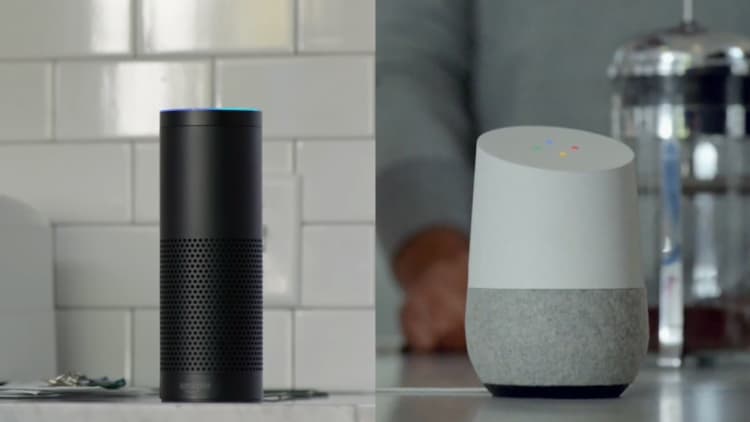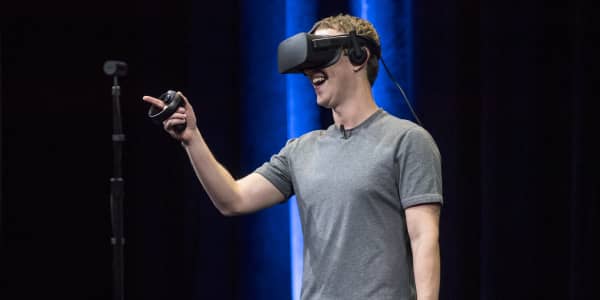Until recently, Amazon and Google competed for presence in our homes through their own gadgets: Smart speakers like the Amazon Echo and Google Home, TV add-ons like Chromecast and Fire TV and even home security systems like Nest and Ring.
But, at CES 2019, that competition was brought to a boil as partners from both companies launched dozens of products that will bring Amazon Alexa and Google Assistant into nearly every aspect of our lives.
I've been attending CES for more than a decade, and it's always home to all sorts of new doohickeys, from robots to health trackers and the latest in TV technology. While those things were all on display this year, too, I couldn't help but notice the massive presence of Google and Amazon, two companies that didn't even exist at CES a couple of years ago. That's because their smart assistants, the ones you can control by voice, are being built into almost every category of new product that was introduced at CES, from TVs to ovens — even lawnmowers and a toilet.
Google tripled the size of its booth this year, where it even had a roller coaster that brought riders through an experience that explained how you can use Google Assistant throughout the day, from getting directions and traffic information to ordering food and snapping a selfie.
Amazon had three different booths. There was one for "Key by Amazon," which showed how you can have packages delivered inside your house, into your car and — new this year — into your garage. It also had a booth dedicated to Ring, its home security system, that showed off a range of new products like security cameras and lights. Amazon also had an entire room where it had an array of products from its partners, including smart glasses, coffee machines, ovens and more, all with Alexa built-in.
Both firms also revealed how widespread their ecosystems are.
Google said that by the end of January, more than 1 billion devices will have Google Assistant built-in. That's up from 500 million in May, but a lot of that growth is because Assistant now ships as a standard feature on Android phones. Google Assistant is also built into 10,000 different smart home devices from more than 1,600 brands, the company said.
Amazon said there are now more than 150 products with Alexa built directly in — which means you can talk right to it without also owning an Echo — and more than 28,000 products from 4,500 brands that support it. That means you need an Amazon Echo to control the gadget. Amazon also said it has now sold more than 100 million Alexa devices.
There's a reason the number of products that support the assistants is skyrocketing.
Last year, Amazon introduced a developer kit that made it much easier for partners to add Alexa to their devices. It showed this with a proof of concept microwave that it now sells. If a partner decides to add Amazon Dash integration, then it can be used to automatically order more supplies when you run low, like more detergent for your Alexa-powered dishwasher. Google also introduced similar tools for developers.
By pure booth presence alone, Google left the biggest impression on me at CES. I've just never seen a roller coaster in a booth. But, and this was clear walking around the show, more brands and products were on display with Amazon Alexa on board. Some supported both.
For consumers, this means that as you shop for new products in the coming years, whether it's a car or TV or a home appliance, you'll probably see Alexa or Google built-in, even if you don't necessarily want to use it. If you do, you'll be able to tell Alexa to start the dishwasher or ask Google to set your oven to 375 degrees.
And this means that Amazon and Google are becoming nearly omnipresent, whether you want them to be or not. Since Alexa and Google Assistant learn from what you ask of them, that means Amazon and Google will be able to learn more than ever about you and your habits. And for them, that's big business. It gives Amazon the ability to gather data on your purchasing habits and recommend more items you're likely to buy. And Google will learn more about you for its targeted advertising business.






